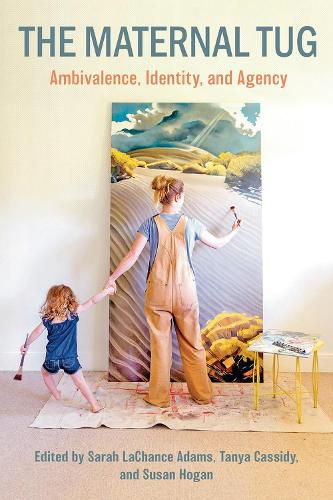Readings Newsletter
Become a Readings Member to make your shopping experience even easier.
Sign in or sign up for free!
You’re not far away from qualifying for FREE standard shipping within Australia
You’ve qualified for FREE standard shipping within Australia
The cart is loading…






While the existence of maternal ambivalence has been evident for centuries, it has only recently been recognized as central to the lived experience of mothering. This accessible, yet intellectually rigorous, interdisciplinary collection demonstrates its presence and meaning in relation to numerous topics such as pregnancy, birth, Caesarean sections, sleep, self-estrangement, helicopter parenting, poverty, environmental degradation, depression, anxiety, queer mothering, disability, neglect, filicide and war rape. Its authors deny the assumption that mothers who experience ambivalence are bad, evil, unnatural, or insane.
Moreover, historical records and cross-cultural narratives indicate that maternal ambivalence appears in a wide range of circumstances; but that it becomes unmanageable in circumstances of inequity, deprivation and violence. From this premise, the authors in this collection raise imperative ethical, social, and political questions, suggesting possibilities for vital cultural transformations. These candid explorations demand we rethink our basic assumptions about how mothering is experienced in everyday life.
$9.00 standard shipping within Australia
FREE standard shipping within Australia for orders over $100.00
Express & International shipping calculated at checkout
While the existence of maternal ambivalence has been evident for centuries, it has only recently been recognized as central to the lived experience of mothering. This accessible, yet intellectually rigorous, interdisciplinary collection demonstrates its presence and meaning in relation to numerous topics such as pregnancy, birth, Caesarean sections, sleep, self-estrangement, helicopter parenting, poverty, environmental degradation, depression, anxiety, queer mothering, disability, neglect, filicide and war rape. Its authors deny the assumption that mothers who experience ambivalence are bad, evil, unnatural, or insane.
Moreover, historical records and cross-cultural narratives indicate that maternal ambivalence appears in a wide range of circumstances; but that it becomes unmanageable in circumstances of inequity, deprivation and violence. From this premise, the authors in this collection raise imperative ethical, social, and political questions, suggesting possibilities for vital cultural transformations. These candid explorations demand we rethink our basic assumptions about how mothering is experienced in everyday life.